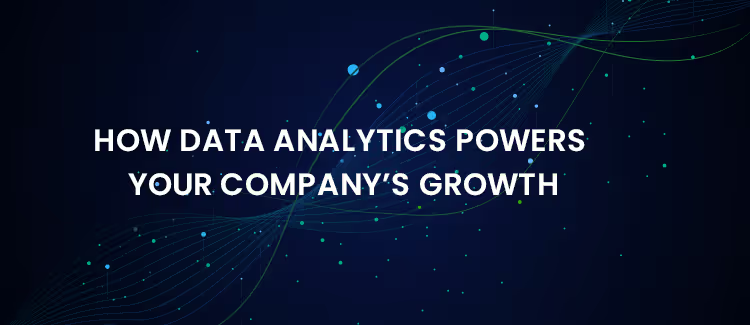
We’ve all heard it before ‘Data is the new oil’. Well, buzzwords aside, it can get confusing to get lost in the hype if you’re new to the data and analytics space. With people spending an increasing amount of their lives online on their smartphones, tablets, PCs and even TVs there is a wealth of data being created a digital footprint of sorts for every prospective customer out there.
Now, this data is incredibly powerful if the right insights can be gleaned from it and the right actions are taken as a response to them. However, even though data is being collected, often companies make the mistake of being paralyzed by the information and not leveraging it in terms of business strategy.
Bain and Company reported that less than 4% of the world's top companies are currently using these data insights in the right way. So, if you’ve still not figured out a big data strategy for your company, here’s why you need to be doing it as of ‘yesterday’.
Prevents companies from growing complacent.
We’ve all seen it before, big companies are too slow to take action and believe that the Goliath is too big to fail. That is until a quick and nimble David takes them down with a carefully planned strike. Implementing a data strategy helps the leadership and the team get complete visibility into performance. It can continually showcase areas where processes can be improved and optimized.
It can prevent inertia from setting in and can show the management exactly where the company is lagging so that action can be taken at the right time before it turns into a bleeding liability.
Prevents companies from running blind.
When a company becomes sizeable large, it can get extremely difficult to make business decisions without impacting a significant number of people. Hence emotions tend to run high and endowment bias tends to set it in, it can lead to decisions being made at the cost of the companies profit margins.
Data Analytics can help firms base their decision making on hard evidence preventing the chance of an emotional backlash or ill will. When decisions are made based on actual outcomes rather than management’s feelings it helps a company to be fairer to their people.
It helps companies stay on top
A survey by Bain & Company of 400 large businesses showed that companies that leverage advanced analytics companies tend to be industry leaders. They usually have better financial performance than their peers and are more agile, allowing them to stave off disruption by competitors.
For instance, for the retail sector, an analysis of supplier performance based on location can give valuable data on which supplier has a higher-order fulfillment rate, this can help firms prioritize orders to the high performing supplier and reduce chances of disgruntled customers.
It can also help companies understand which customers are more likely to come back based on the past buying behavior and allows them to increase their marketing spend and targeting to improve ROI rather than casting their net too wide.
Improves Marketing & Advertising efforts
One of the major expenses for any growing firm is their marketing and advertising division. It can get increasingly difficult to quantify which campaigns are working and which ones aren’t in the absence of corresponding data.
In the Digital Marketplace, with the help of Data Analytics services every marketing effort (From Messaging, Popups, Platforms, Landing Pages and Product images) can be A/B tested.
This helps identify which ad is performing well with the target audience and increase the budgets behind it. It helps identify non-performers quickly and drop them before too much money is burnt on a campaign that isn’t generating results.
Predicts demand and helps optimize effort
Business demand is seasonal, for example, the demand for luxury candy may go through the roof during Valentine's Day and Christmas season or the demand for beer may go up during the Super bowl. In such a scenario, retailers have to adjust their stocks to meet the additional demand.
Data Analytics can help predict such seasonal demand and automate the supply chain to meet it and improve profit margins, it can similarly detect seasonal slumps and reduce stocking, especially for perishable items to prevent losses due to spoilage.
To know how to use analytics in your business? Contact Us.



